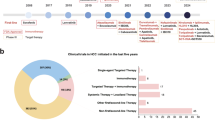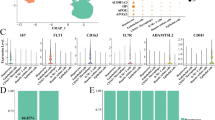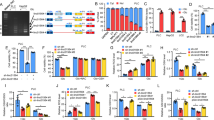Abstract
Fatty acid-CoA ligase 4 (FACL4) is a central enzyme controlling the unesterified free arachidonic acid (AA) level in cells and the free AA is known to induce apoptosis. We have recently reported that expression of FACL4 is upregulated in about 40% of human hepatocellular carcinoma (HCC) and 50% of HCC cell lines, suggesting that FACL4 may be involved in liver carcinogenesis. In this study, we investigated whether HCC cell growth is regulated by FACL4. Immunoblot analysis showed that SNU 398 cells express very low or no detectable level of FACL4. We, therefore, transfected the SNU 398 cells with FACL4 expression vector, and clones expressing FACL4 were pooled and analyzed. We found that forced expression of FACL4 in SNU 398 promotes the growth of cells. In addition, we observed that triacsin C, a FACL4 inhibitor, inhibits the growth of Hep 3B cell line which expresses high level of endogenous FACL4. We also found that the triacsin C-mediated growth inhibition in Hep 3B cells results from the induction of apoptosis with evidence of Bcl-2 reduction. Altogether, our data show that FACL4 affects HCC cell growth and suggest that modulation of FACL4 expression/activity is an approach for treatment of HCC.
Similar content being viewed by others
Article PDF
Author information
Authors and Affiliations
Rights and permissions
This is an Open Access article distributed under the terms of the Creative Commons Attribution Non-Commercial License (http://creativecommons.org/licenses/by-nc/3.0/) which permits unrestricted non-commercial use, distribution, and reproduction in any medium, provided the original work is properly cited.
About this article
Cite this article
Sung, Y., Park, M., Hong, S. et al. Regulation of cell growth by fatty acid-CoA ligase 4 in human hepatocellular carcinoma cells. Exp Mol Med 39, 477–482 (2007). https://doi.org/10.1038/emm.2007.52
Published:
Issue date:
DOI: https://doi.org/10.1038/emm.2007.52
Keywords
This article is cited by
-
Enhanced lipid metabolism induces the sensitivity of dormant cancer cells to 5-aminolevulinic acid-based photodynamic therapy
Scientific Reports (2021)
-
Identification of MiR-211-5p as a tumor suppressor by targeting ACSL4 in Hepatocellular Carcinoma
Journal of Translational Medicine (2020)
-
ACSL4 promotes hepatocellular carcinoma progression via c-Myc stability mediated by ERK/FBW7/c-Myc axis
Oncogenesis (2020)
-
Fatty acid metabolism and cancer development
Science Bulletin (2016)
-
Promotion of glioma cell survival by acyl-CoA synthetase 5 under extracellular acidosis conditions
Oncogene (2009)



